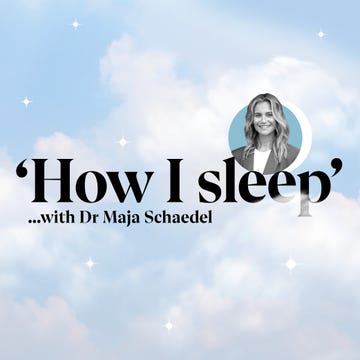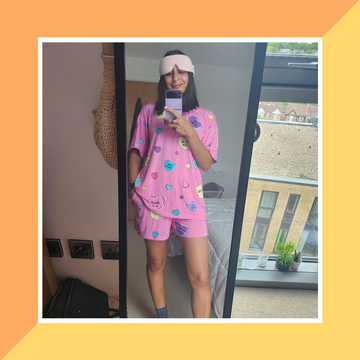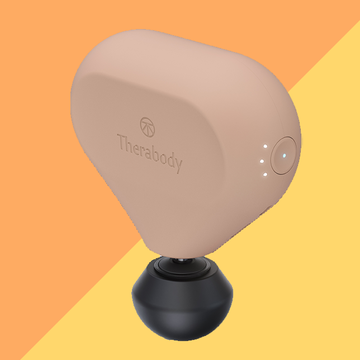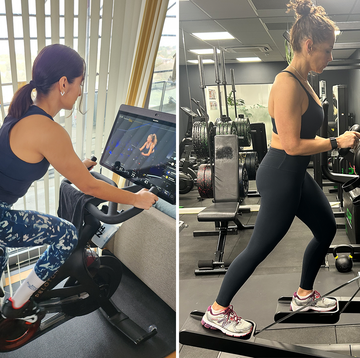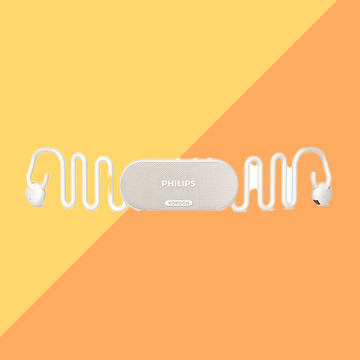We’ve all been there – tossing and turning, watching the clock tick through the early hours. Whether it’s stress, overthinking or a disrupted routine, a poor night’s sleep can leave us feeling groggy, unfocused and irritable.
Studies show that adults generally need seven to nine hours of sleep per night, but surveys suggest many of us average only six to six-and-a-half hours. Since sleep is crucial for recovery, memory and overall health, it’s important to bounce back after a restless night and set yourself up for better sleep moving forward. Here are four practical (and science-backed) strategies to help you recover and improve your sleep quality.
1. In the morning, boost your body clock
You’ve probably heard that morning light exposure can help regulate your body’s internal clock (circadian rhythm), but here’s how to take it up a notch: combine it with movement. Natural daylight signals to your brain that it’s time to wake up by suppressing melatonin (the sleep hormone) and boosting serotonin (which helps with mood and alertness). At the same time, gentle outdoor exercise – such as a short walk or stretching in the fresh air – gives your body an extra push to shake off sleep inertia. Even just 15 minutes of morning sunlight can help regulate your sleep-wake cycle and improve your energy levels throughout the day.
Tip Take your coffee outside and go for
a walk instead of scrolling on your phone indoors. Even a slow stroll around the block can help reset your internal clock and get you back on track.
2. Try a coffee nap (yes, really!)
It sounds counterintuitive, but a ‘coffee nap’ might be the secret weapon you didn’t know you needed. The idea? Drink a cup of coffee, then immediately take a short 15-20-minute nap. Since caffeine takes about 20 minutes to kick in, you wake up just as it starts working – feeling extra refreshed instead of groggy. Research suggests that a coffee nap can boost alertness more effectively than either caffeine or napping alone. It works because napping clears adenosine, a chemical that makes you feel sleepy, just as caffeine blocks its effects. The result? A double hit of wakefulness without the post-nap slump.
Tip If you’re struggling to stay awake after a bad night’s sleep, try this between 1pm and 3pm (your natural energy dip). Just make sure you don’t nap
too late, or it could interfere with your sleep that night.
3. Do the cognitive shuffle
If overthinking keeps you awake, you’re not alone. Racing thoughts can trap your brain in high-alert mode, making it impossible to drift off. That’s where the cognitive shuffle comes in – a quirky but effective cognitive behavioural therapy technique designed to disrupt anxious thought loops and lull you to sleep. Here’s how to do it…
- Pick a neutral word, like ‘pillow’.
- Think of as many unrelated words
as possible that start with the same
letter (‘paper,’ ‘penguin,’ ‘pasta’). - Once you run out of ideas, move to
the next letter in your word. - Keep going until you fall asleep.
The technique works because it occupies your brain just enough to block out stress, but not enough to keep you awake. It’s like counting sheep – but
way more fun and effective.
Tip If negative thoughts creep in, don’t fight them. Just acknowledge them and return to your word shuffle.
4. In the evening, try a short burst of movement
Recovering from a sleepless night means prioritising good sleep the next night.
A solid evening routine signals to your brain that it’s time to wind down –
but instead of just dimming the lights and avoiding screens, try adding some light movement. Why? Research suggests that breaking up long periods of sitting (like an evening in front of the TV) with two to three minutes of movement every half an hour can improve sleep quality. You don’t need an intense workout – just small movement breaks
in the evening can make a big difference to how well you sleep.
Tip Try getting up every 30 minutes during TV time to stretch or do a few
easy yoga poses.
The key to better sleep? Consistency. Small daily habits – such as getting some morning sunlight, mindful napping and
a gentle night-time routine – can have a lasting impact. So start today and trust that your body is resilient. A good night’s sleep is within reach.
If struggles with sleep continue, do see your GP. In some areas of the UK, your doctor can refer you for CBT-I (cognitive behavioural therapy for insomnia) or give you access to the Sleepio app, which uses evidence-based techniques to combat insomnia.



